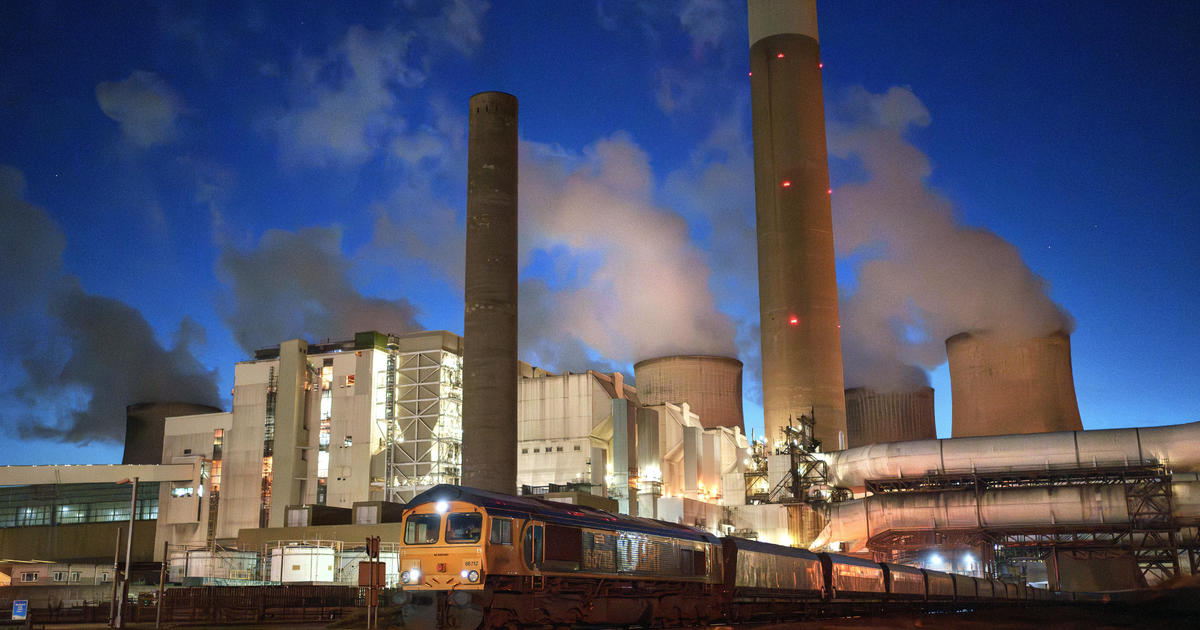The United Kingdom’s complete phase-out of coal-fired power generation marks a significant milestone in its commitment to combating climate change and achieving net-zero emissions. The closure of Ratcliffe-on-Soar, the nation’s last coal plant, after 56 years of operation, signifies not just the end of an era, but a decisive shift towards cleaner energy sources. This momentous occasion, the culmination of decades of policy changes and technological advancements, positions the UK as a global leader in decarbonizing its energy sector, offering valuable lessons and inspiration to other nations grappling with similar challenges. This transition, while celebrated, also presents complex socio-economic considerations requiring careful management.
The End of an Era: The UK’s Coal Power Phase-Out
The closure of Ratcliffe-on-Soar power station, the last coal-fired plant in the UK, concluded a 140-year dependence on coal for electricity generation. This landmark event underscores the UK’s commitment to its ambitious climate targets, demonstrating its dedication to moving away from the most polluting fossil fuel. The plant, operational since 1967, has contributed significantly to the nation’s energy supply. However, its closure symbolizes a departure from a past heavily reliant on a resource detrimental to environmental health.
Environmental Impacts of Coal
Coal’s significant contribution to climate change, owing to its high carbon emissions, has been a primary driver behind its decline. The combustion process releases substantial amounts of carbon dioxide, a potent greenhouse gas contributing significantly to global warming. Beyond CO2, coal also releases harmful pollutants such as mercury and arsenic, further impacting both human health and the environment. The air pollution resulting from coal-fired power plants has long-term consequences on respiratory health and overall air quality. The phasing out of coal marks a major step toward mitigating these devastating effects and reducing the UK’s overall carbon footprint.
Economic Implications and Job Transitions
While the environmental benefits of coal phase-out are undeniable, the economic and social transitions are complex. The closure of Ratcliffe-on-Soar impacted employment in the local community, highlighting the importance of addressing job displacement. The government’s commitment to creating a new “age of good energy jobs” focuses on reskilling and retraining programs for workers affected by the coal industry’s decline, encouraging transitions to new renewable energy sectors like wind, solar, and nuclear power. Investing in infrastructure and green technology development provides opportunities for sustainable economic growth, counterbalancing the economic impacts of phasing out a century-old industry.
Global Leadership in Decarbonization
The UK’s complete coal phase-out positions it as a global leader in decarbonizing its energy sector. While some other countries have also phased out coal, the UK is the first major G7 economy to achieve this milestone, offering a compelling example for other nations. The UK’s strategy provides a practical framework and showcases a commitment to environmentally sound energy policy, highlighting the potential for significant emissions reductions even within advanced economies.
Challenges and Opportunities for Other Nations
The transition experienced by the UK holds valuable lessons for other nations committed to reducing reliance on coal. This success emphasizes the possibility of a comprehensive phase-out even within an economically robust and energy-intensive nation. While the socio-economic impact requires strategic mitigation through governmental support and job retraining initiatives, the environmental benefits are profound. The UK’s trajectory inspires global efforts to curb climate change, demonstrating that significant emission reductions are attainable and providing an example for other nations struggling with similar energy transitions. The UK’s commitment and execution pave the way for future global cooperation on decarbonization.
The Future of Energy: Renewable Resources and Innovation
The UK’s future energy system relies on transitioning from coal towards a diverse range of renewable energy sources. The closure of coal power plants signals a decisive move towards cleaner energy, a crucial component of its broader strategy to achieve net-zero emissions. This commitment encompasses substantial investment in renewable technologies and energy efficiency measures, promoting growth in the green energy sector and laying the foundation for a sustainable energy future.
Renewable Energy Investments and Development
The UK’s journey demonstrates that energy independence from fossil fuels is achievable, opening a new era of reliance on alternative energy sources. Investing heavily in renewable energy technologies is paramount; advancements in wind, solar, and other green technologies significantly enhance their effectiveness and reduce costs. A diversified energy mix, including renewable sources complemented by nuclear power and other low-carbon technologies, will guarantee stability and security for energy supply in the coming years. This strategic shift requires long-term planning and investment in infrastructure and technology to enable widespread adoption of renewable sources.
Technological Advancements and Energy Efficiency
Technological advancements in renewable energy capture, storage, and distribution are central to successful energy transitions. Smart grid technologies play a critical role in optimizing energy distribution, efficiently integrating variable renewable sources, and effectively responding to changing energy demand. The implementation of advanced energy efficiency measures across various sectors—from homes and transportation to industries—becomes integral in mitigating the risks related to an increased reliance on variable energy resources. This integration is an essential aspect of managing this complex shift, contributing to a more stable, resilient, and eco-friendly energy system.
Take Away Points:
- The UK’s complete coal phase-out demonstrates a commitment to climate change mitigation and achieving net-zero emissions.
- This transition requires careful management of socio-economic impacts, particularly in job transitions.
- The UK’s experience provides valuable lessons for other nations seeking to decarbonize their energy sectors.
- The future of UK energy hinges on diverse renewable energy sources, complemented by technological advancements and strong energy efficiency measures.




